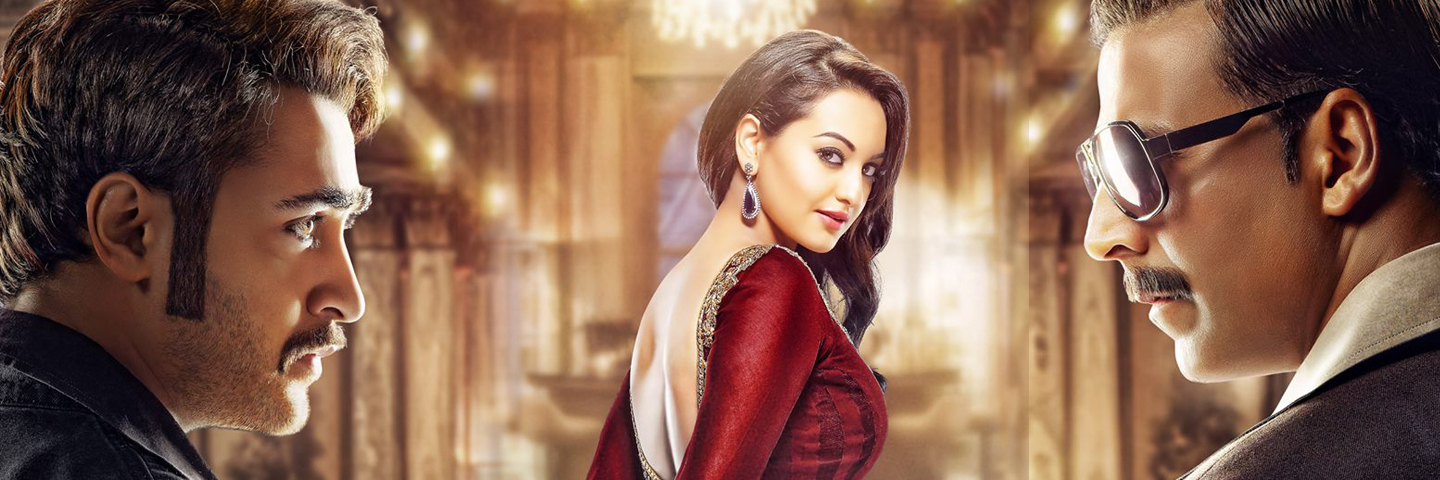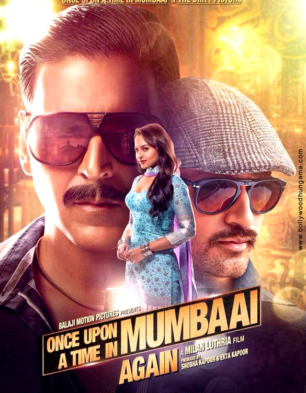Music: Pritam
Lyrics: Rajat Aroraa
Music label: T-Series
Expectations:
The musical expectation is very high from this sequel to the melody-rich Milan Luthria-Pritam collaboration Once Upon A Time In Mumbaai (OUATIM). Moreover, Luthria is a filmmaker with a heritage of memorable musicals like Kachche Dhaage, Chori Chori and even The Dirty Picture.
As for Pritam, he's on a roll after Barfi!, Race 2 and Yeh Jawaani Hai Deewani and we expect that merit.
Music:
The soundtrack has only four songs but nevertheless emerges as one of the better albums of this year. Let us begin with the finest track, the energetic 'Tu Hi Khwahish', rendered with superb zing by Sunidhi Chauhan. Clearly the counterpart of 'Parda' from the prequel (which was a number derived in part from two classics), it is a super club song that is a hark back to such tracks from Prakash Mehra and Feroz Khan with Kalyanji-Anandji, laced with some vocal and orchestral nuances reminding us of R.D. Burman!
The beauty is that this is still a completely original track with some intense romantic lyrics by Rajat Aroraa (Tu hi khwahish / Tu hi khatra / Zeher tera dil mein utra). The arrangements are richly acoustic, and the production so harmonious that at no point does the song jar on the ears despite Sunidhi's sustained high pitch.
And if the '70s is the timeframe of the film, and K-A and RD are there, can the then-market-leaders Laxmikant-Pyarelal be left behind? L-P's latest in a long chain of re-creations is 'Tayyab Ali', whose re-creation is credited to Pritam's assistant Anupam Amod but seems clearly like his own handiwork. Smartly adapted with some really witty lyrics (Rajat Aroraa adds his bit to the Anand Bakshi's irreverent verse in the original film, Amar Akbar Anthony), the song is sung by Javed Ali with fair panache, and odiously unfair comparisons to Mohammed Rafi are best avoided!
What sets 'Tayyab Ali' apart from the standard re-creations nowadays is a near-identical situation to the original song, and the imaginative contemporary tenor. Pritam replicates the old orchestration only to a basic extent, keeping the choral patterns different too.
The third ace of the score is 'Yeh Tune Kya Kiya', sung with full-throated expertise by Javed Bashir, heard recently also in Bhaag Milkha Bhaag. Lyrically, this is the finest song on the score, and clearly the corresponding number to the Sufi delight in the older film in the OUATIM franchise, 'Tum Jo Aaye Zindagi Mein'.
This time, it is a more intricate composition, also given a Sufi-rock treatment, and it even tributes the older number by skillfully working in a musical segment recalling that song! The play of strings in the interlude boosts up the soulful quotient.
Pritam can always be relied upon to be a tuneful bridge between the best of the melodious past and today's music and Bashir's harkatein as he sings the line Ishq ki….baaziyaan shows how the composer adheres to deep melody like few of his contemporaries do. The phonetics of this track is immaculate, structured to spice up the aural appeal of the melody.
A comparatively weaker song is 'Chugliyaan' (Javed Ali-Sahir Ali Bagga), which sounds too calculated both in music and lyrics, thus ending up as an average but stereotyped number. The hook (Mera yaar yaar mujh mein / Mera pyaar pyaar tujh mein) lacks the power to linger in memory. No, it is not a bad song, but it is one of those familiar grooves that we have heard ad infinitum from lesser composers.
Overall:
The high-profile film should hopefully boost the musical prospects. One hopes that the filming of the song within the movie helps too.
Our Picks
Yeh Tune Kya Kiya, Tayyab Ali, Tu Hi Khwahish


